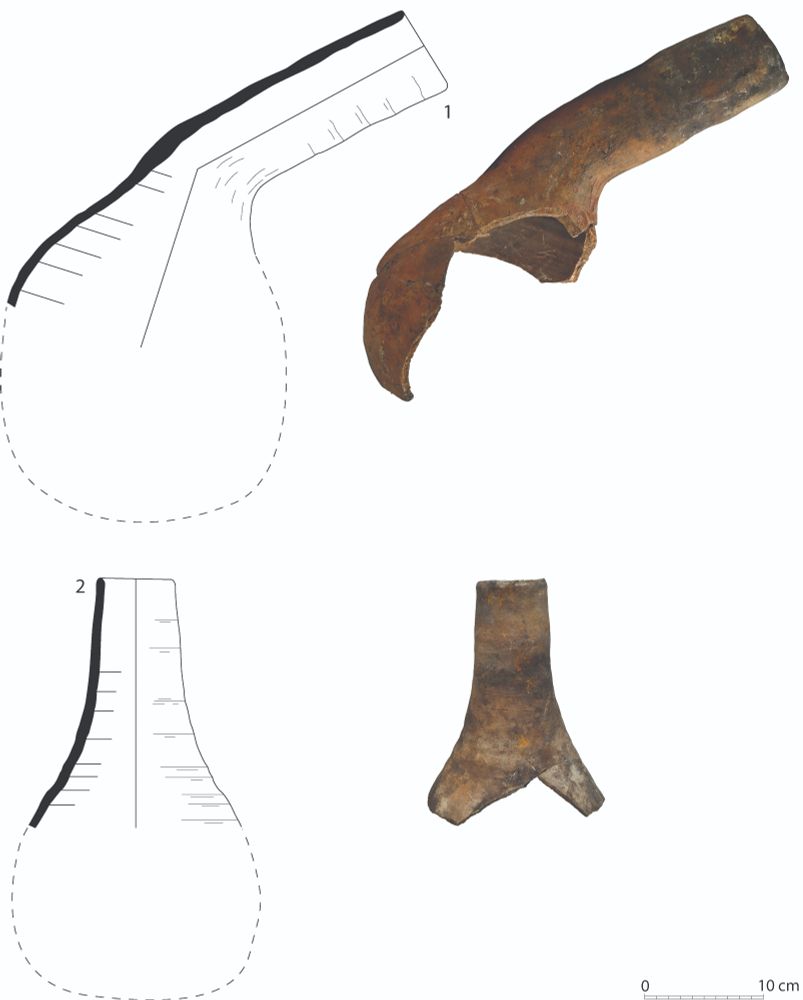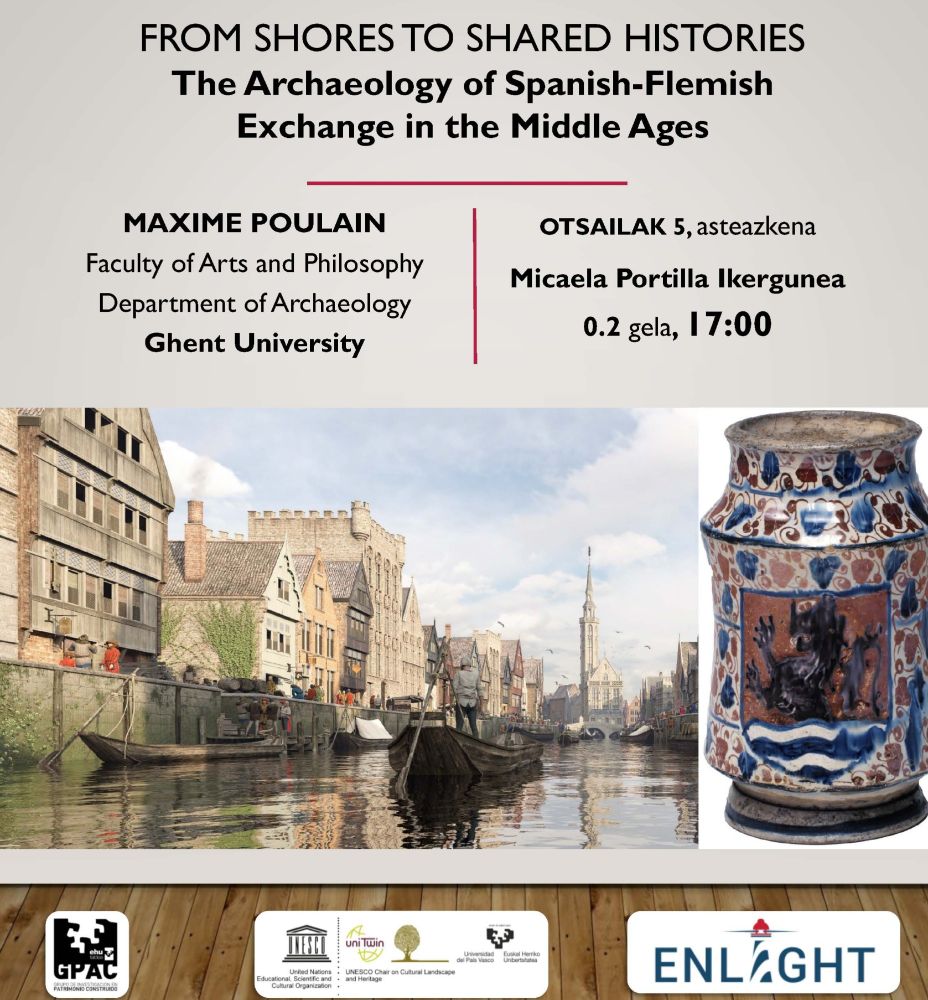
🏺 🧪

🏺 Sublimation vessels, used in the production of the red pigment vermillion
🧪A glass alembic, used for distilling medicinal waters such as alcohol
🪡 Silk dyed with kermes
👃 Near-Eastern perfume sprinklers




🏺 Sublimation vessels, used in the production of the red pigment vermillion
🧪A glass alembic, used for distilling medicinal waters such as alcohol
🪡 Silk dyed with kermes
👃 Near-Eastern perfume sprinklers
A rare case from a 14th-century brothel in Aalst reveals an infant that was likely breastfed and buried with care — challenging long-held assumptions about medieval sex workers and infanticide.
👉 Read it here in Open Access: rdcu.be/eh4Lj

A rare case from a 14th-century brothel in Aalst reveals an infant that was likely breastfed and buried with care — challenging long-held assumptions about medieval sex workers and infanticide.
👉 Read it here in Open Access: rdcu.be/eh4Lj
A new chapter begins! 🎉
Yesterday, I started as a Marie Curie fellow at the University of Tübingen, researching medieval sex work in Flanders through aDNA analysis.
Excited for the next two years—come find me at the castle! 🏰


A new chapter begins! 🎉
Yesterday, I started as a Marie Curie fellow at the University of Tübingen, researching medieval sex work in Flanders through aDNA analysis.
Excited for the next two years—come find me at the castle! 🏰




#archaeology 🏺

#archaeology 🏺




